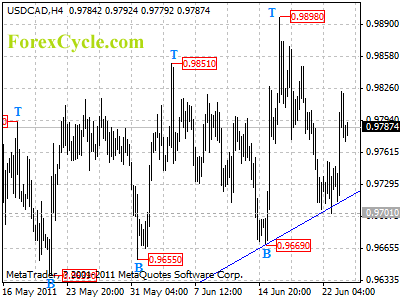By Early To Rise
The starting point of great success has always been the same. It is to dream big dreams. There is nothing more important than to begin by fantasizing about what you can become, have, and do.
But there are obstacles along the way to achieving those dreams.
Business management expert Elihu Goldratt explains this with what he calls the “Theory of Constraints.” In accomplishing any goal, he says, there is a bottleneck that serves as a constraint on the process. This constraint sets the speed at which you achieve the goal. But he has found that if you concentrate on eliminating that limitation, you can speed up the process.
Let’s say you want to double your income. What is the limiting factor that’s holding you back and slowing you down?
Well, you know that your income is a direct reward for the quality and quantity of the services you render to the world. This tells you that if you want to double your income, you have to double the quality and quantity of what you do for that income. Or you have to make a change so that your time is worth twice as much.
Let me give you an example…
A friend of mine is one of the highest-paid commission-based professionals in the United States. One of his goals was to double his income in three to five years. When he analyzed his client base, he discovered that only a fraction of them contributed the majority of his profits. He also found that the amount of time he spent on a high-profit client was pretty much the same as the amount of time he spent on a low-profit client.
So he very carefully, politely, and strategically handed off the low-profit clients to other professionals in his industry.
He then put together a profile of his top clients and began looking exclusively for new clients who fit that profile. And by taking on only clients who could become major contributors to his profits, instead of doubling his income in three to five years, he doubled it the first year!
Find Out Why This Mystery Man Has the Major Networks Worried
He came over to the US from England just a few years ago, with nothing but a suitcase. No contacts. No established business. Nothing.
This “online wealth activator” put him on his feet. Today, he earns over $12,000 per month as a direct result.
Even major television networks are worried that this “online wealth activator” could spell disaster for them in the not-too-distant future.
To learn more about this “mystery man” and why he has major networks worried, click here.
Three Keys to Living Without Limits
So what is holding you back? Is it your level of education or skill? Is it your current occupation or job? Is it your environment or health? What is setting the speed for achieving your goals?
Remember, whatever you have learned, you can unlearn. Whatever situation you have gotten yourself into, you can probably get yourself out of.
To live without limiting what you can achieve, you must recognize your constraints and then act to expunge them. To do that, you need clarity, competence, and concentration.
#1. Clarity
Clarity means that you are absolutely clear about who you are, what you want, and where you’re going. You write down your goals and make plans to accomplish them. You set priorities and do something every day to move yourself forward.
The more progress you make toward accomplishing what’s important to you, the more self-confidence you have and the more convinced you become that you have no limits.
# 2. Competence
Competence means that you begin to become very good in your chosen field. You dedicate yourself to continuous learning. You never stop growing. You realize that excellence is a moving target. And you make a commitment to do something every day that enables you to become better and better.
# 3. Concentration
Concentration means having the discipline to focus on one thing, the most important thing, and stay with it until it’s complete.
It’s knowing exactly what you want to be, have, and do. It’s persevering, without diversion or distraction, in a straight line toward the things that can make a real difference in your life.
When you allow yourself to dream big dreams, abandon the activities that are taking up too much of your time, and focus your energies on alleviating your constraints, you start to feel an incredible sense of power. As you focus on doing what you love to do and becoming excellent in a few areas, you begin to think in terms of possibilities rather than impossibilities. And you move ever closer to the realization of your full potential.
[Ed. Note: Go here to read Brian Tracy’s FREE special report, “Discovering Your Talents.”
In this report, success expert, coach, and bestselling author Brian Tracy reveals the exact strategy he uses to produce more income, more leisure time, and more fulfillment and enjoyment in his life.
Whatever you’re doing today, it’s nowhere near what you’re really capable of. So download Brian’s free special report NOW to unleash your FULL potential!]
This article appears courtesy of Early To Rise, a free newsletter dedicated to creating wealth and success through inspiration and practical, proven advice. For a complimentary subscription, visit http://www.earlytorise.com.


